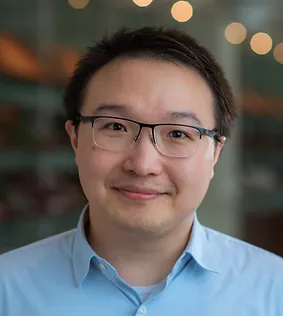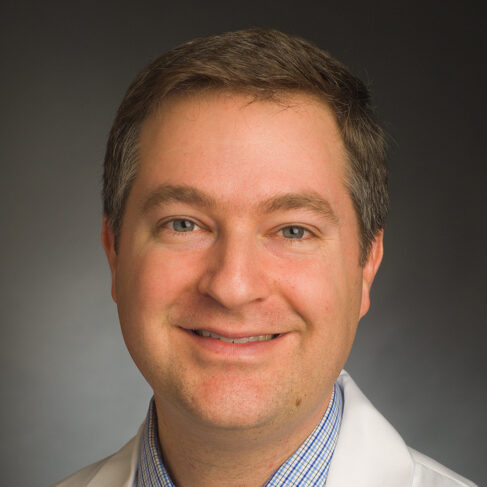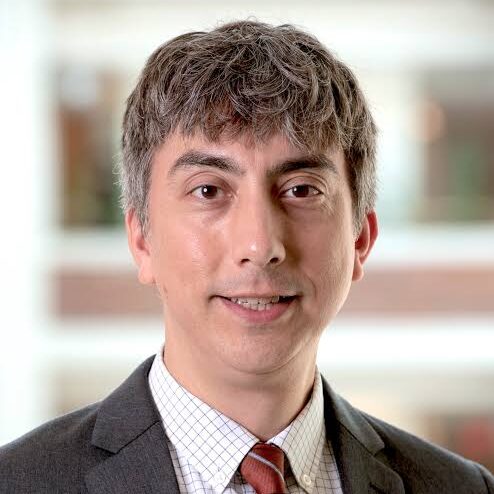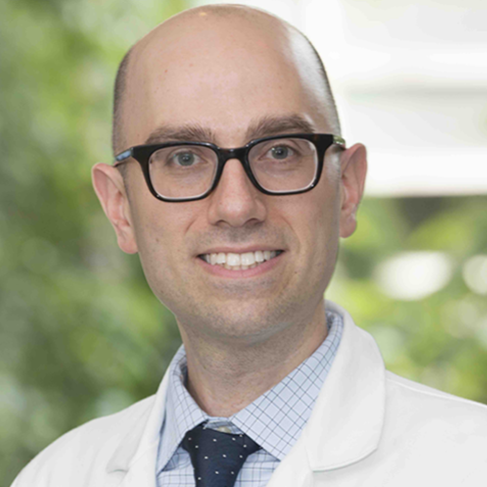Foundation grants $3.55 million in new research awards, bringing annual total funding awarded to $3.87 million
FOR IMMEDIATE RELEASE
NEW YORK, December 10, 2024
The Lung Cancer Research Foundation® (LCRF) is pleased to announce its 2024 Scientific Grant Program awards, funding $3.55 million in new research, the largest single-year investment in its history. This year’s grant cycle includes awards in the following areas: LCRF Leading-Edge Grant in Lung Cancer, LCRF Research Grant on Early Detection and Pre-Neoplasia in Lung Cancer, LCRF Research Grants on Understanding Resistance in Lung Cancer, LCRF Minority Career Development Award (CDA) for Lung Cancer, and the IASLC-LCRF Team Science Research Grant on the Next Step in the Cure of Oncogene-Driven Lung Cancers. Earlier this year, LCRF awarded the American Lung Cancer Screening Initiative (ALCSI), led by Chi-Fu Jeffrey Yang, MD, of Massachusetts General Hospital, a $320,000 grant to conduct its “Plus One” screening initiative and research study.
LCRF awarded its grants for projects that demonstrate profound promise to make a sustained and lasting impact on lung cancer research and outcomes. These grants are made possible by Research ALK+ve Lung Cancer UK, the LRE Foundation, and numerous generous donations from LCRF’s supporters.
“Each year, our Scientific Advisory Board and Research Advocates review hundreds of submissions,” said Colleen Conner Ziegler, Chair of LCRF’s Board of Directors. “This ensures that LCRF is funding projects that will have the greatest impact on the lung cancer community and improve patient outcomes, both in the short and long term.”
“Because research is LCRF’s True North, we are committed to supporting science that seeks solutions to lung cancer’s most challenging issues and unmet needs,” said Kathryn O’Donnell, PhD, chair of LCRF’s Scientific Advisory Board and Associate Professor, Molecular Biology, UT Southwestern Medical Center. “Funding the most innovative research will ultimately lead to improved outcomes for patients with lung cancer.”
Through its Leading Edge Research Grant in Lung Cancer, LCRF funds innovative research focused on the prevention, diagnosis, treatment, and cure of lung cancer. This year, LCRF will be funding two projects through this mechanism.
LCRF’s Research Grant on Early Detection and Pre-Neoplasia in Lung Cancer is presented to an investigator whose project facilitates or advances the understanding and characterization of pre-neoplasia or approaches for early detection in non-small cell and small cell lung cancer.
The LCRF Research Grants on Understanding Resistance in Lung Cancer are presented to two recipients whose projects focus on combatting therapeutic resistance.
LCRF’s Minority Career Development Award for Lung Cancer, a two-year award to support early-stage scientists from underrepresented groups, is supported in part by a grant from the LRE Foundation. This year, LCRF will fund two projects in this area that will increase the representation of investigators from underrepresented groups in the lung cancer research workforce.
In partnership with the International Association for the Study of Lung Cancer (IASLC), the IASLC-LCRF Team Science Research Grant on the Next Step in the Cure of Oncogene-Driven Lung Cancers award, is a $2.5 million award over four years granted to a team of scientists whose coordinated projects advance research in oncogene-driven lung cancer with the intent to culminate in a clinical trial.
Each year, LCRF recognizes exemplary projects through its James B. Dougherty, MD Award for Scientific Merit, and William C. Rippe Award for Distinguished Research in Lung Cancer, in honor of the contributions to LCRF made by these esteemed former board members. This year, LCRF added the Cynthia M. Page Merit Award in memory of Ms. Page, whose family established the LRE Foundation and funded the grant awarded in her honor.
The James B. Dougherty, MD Award for Scientific Merit is presented to the investigator whose proposal was selected for outstanding overall merit by the Foundation’s Scientific Advisory Board. This year’s recipient is Dian Yang, PhD of Columbia University Irving Medical Center, whose project is titled “Investigating the molecular basis of cancer plasticity in LKB1-mutant lung adenocarcinoma.”
“This LCRF Leading Edge Research Grant will enable my lab to investigate the molecular mechanisms driving cancer plasticity in Lkb1-mutant lung adenocarcinoma, shedding light on potential strategies for developing innovative treatments,” remarked Dr. Yang.
LCRF’s William C. Rippe Award for Distinguished Research in Lung Cancer is presented to the investigator whose proposal not only demonstrated exceptional scientific merit but also exemplified an enduring commitment to making an impact in the field of lung cancer research. This year’s recipient is Lindsay LaFave, PhD of Albert Einstein College of Medicine, whose project is titled “Investigating chromatin-mediated mechanisms of immune response in lung cancer.”
“I am honored to receive the William C. Rippe Award for Distinguished Research in Lung Cancer from the Lung Cancer Research Foundation,” said Dr. LaFave. “Thanks to the support from LCRF we hope to better understand differences in immunity in individuals with and without a smoking history to improve immunotherapy outcomes in lung cancer.”
The Cynthia M. Page Merit Award for Innovation in Lung Cancer Research is awarded to the investigator whose proposal demonstrates exceptional scientific merit and groundbreaking innovation, pushing the boundaries of lung cancer research with creative, forward-thinking approaches. Tikvah Hayes, PhD, of the David Geffen School of Medicine at UCLA is the recipient of this award. Dr. Hayes’s project is titled “Advancing preclinical cell line diversity and decoding TKI-resistance landscapes in EGFR-mutant lung cancer.”
“Thank you to LCRF and the LRE Foundation for this meritorious award,” remarked Dr. Hayes. “I’m hopeful that we will develop innovative models and tools to assess the underlying biology of EGFR-mutant lung cancers.”
The IASLC – LCRF Team Science Research Grant on the Next Step in the Cure of Oncogene-Driven Lung Cancers, announced last month, was awarded to a global team led by David A. Barbie, MD, Director of the Lowe Center for Thoracic Oncology at Dana-Farber Cancer Institute, along with Aaron Hata, MD, PhD of Massachusetts General Hospital; Eric Smith, MD, PhD of Dana-Farber Cancer Institute; Pasi Jänne, MD, PhD of Dana-Farber Cancer Institute; and Shunsuke Kitajima, PhD representing the Japanese Foundation for Cancer Research. Their project is titled, “Immune elimination of drug tolerant persister cells in oncogene-driven lung cancer.”
LCRF 2024 Research Grant Awardees
Leading Edge Grant Program

Lindsay LaFave, PhD, Albert Einstein College of Medicine
William C. Rippe Award for Distinguished Research in Lung Cancer recipient
Investigating chromatin-mediated mechanisms of immune response in lung cancer

Dian Yang, PhD, Columbia University Irving Medical Center
James B. Dougherty, MD Award for Scientific Merit recipient
Investigating the molecular basis of cancer plasticity in LKB1-mutant lung adenocarcinoma
Minority Career Development Award (CDA)

Tikvah Hayes, PhD, David Geffen School of Medicine at UCLA
Cynthia M. Page Merit Award for Innovation in Lung Cancer recipient
Advancing preclinical cell line diversity and decoding TKI-resistance landscapes in EGFR-mutant lung cancer

Luisa Escobar-Hoyos, MSc, PhD, Yale University
Altered RNA splicing as a driver of Osimertinib resistance in lung cancer
Research Grant on Early Detection and Pre-Neoplasia in Lung Cancer

Peggy Hsu, MD, PhD, University of Michigan
Understanding the origin of ALK-driven lung cancer
Research Grants on Understanding Resistance in Lung Cancer

William Feng, PhD, Dana-Farber Cancer Institute
Targeting AP-1 in KRAS-mutant lung cancer

Megan Burger, PhD, Oregon Health & Science University
Optimizing immunotherapy sequencing to overcome resistance
IASLC-LCRF Team Science Research Grant on the Next Step in the Cure of Oncogene-Driven Lung Cancers
David A. Barbie, MD, Dana-Farber Cancer Institute
Aaron Hata, MD, PhD, Massachusetts General Hospital – Harvard Medical School
Pasi Jänne, MD, PhD, Dana-Farber Cancer Institute – Harvard University
Shunsuke Kitajima, PhD, the Japanese Foundation for Cancer Research
Eric Smith, MD, PhD, Dana-Farber Cancer Institute – Harvard University
Immune elimination of drug tolerant persister cells in oncogene-driven lung cancer





For more information about LCRF and the Scientific Grant Program, visit LCRF.org/research.
###
About the Lung Cancer Research Foundation
The Lung Cancer Research Foundation® (LCRF) is the leading nonprofit organization focused on funding innovative, high-reward research with the potential to extend survival and improve quality of life for people with lung cancer. LCRF’s mission is to improve lung cancer outcomes by funding research for the prevention, diagnosis, treatment, and cure of lung cancer. To date, LCRF has funded 428 research grants, totaling nearly $48 million, the highest amount provided by a nonprofit organization dedicated to funding lung cancer research. For more information about the LCRF grant program and funding opportunities, visit LCRF.org/research.
Contact:
Sheila Sullivan
Sr. Director, Marketing and Communications
ssullivan@lcrf.org
